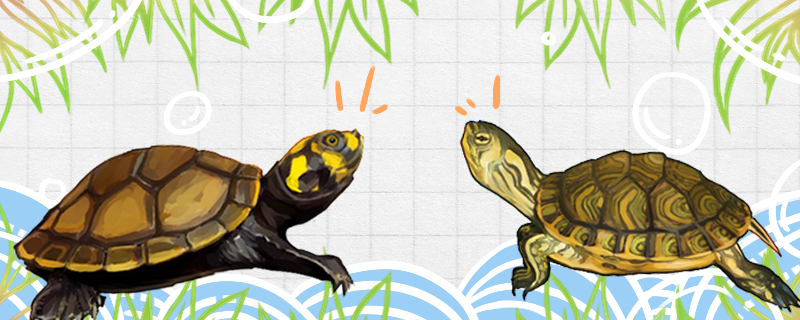
The yellow-headed side-necked turtle is a species of turtle that can be raised in captivity. When breeding them, consider mixing them with other turtle species. However, there are still many problems that need to be paid attention to in mixed culture. Considering that the size of the yellow-headed side-neck turtle is not too small, it is necessary to prepare a larger container for mixed breeding, otherwise it can not provide sufficient space, which is harmful to the growth of both species of turtles. In addition, feeding is also an important factor, if mixed breeding, it is necessary to increase the amount of feeding, and observe whether they will conflict when feeding, if there is a phenomenon of grabbing food, separate them in time.
The yellow-headed side-necked turtle can be mixed with other turtles, but not all turtles can. From the point of view of habits and characteristics, the feeding habits of yellow-headed side-neck turtles are relatively complex, they have higher requirements for water temperature and water quality, and the best habits and characteristics of turtles mixed with them are almost the same. In addition, from the point of view of body size, try to choose turtles whose body size is not too different, so as to avoid big turtles bullying small turtles. Moreover, can not choose the character is too fierce turtles mixed together, otherwise it is easy to appear the phenomenon of grabbing food or fighting.
Specifically, there are many varieties to choose from. For example, pig-nosed turtles, round Australian turtles, map turtles, flame turtles and so on can be mixed with yellow-headed side-neck turtles. They can be raised together when they are young, so that they are familiar with each other and are not easy to fight with each other as adults.